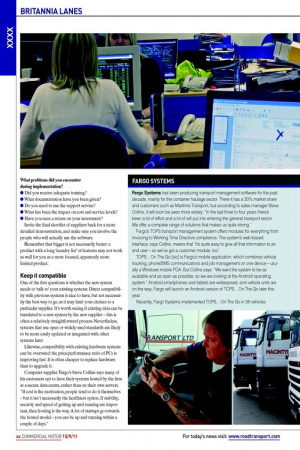Keep it compatible
Page 35

If you've noticed an error in this article please click here to report it so we can fix it.
One of the irst questions is whether the new system needs to ‘talk to’ your existing systems. Direct compatibility with previous systems is nice to have, but not necessarily the best way to go, as it may limit your choices to a particular supplier. It’s worth seeing if existing data can be translated to a new system by the new supplier – this is often a relatively straightforward process. Nevertheless, systems that use open or widely-used standards are likely to be more easily updated or integrated with other systems later.
Likewise, compatibility with existing hardware systems can be overrated: the price/performance ratio of PCs is improving fast. It is often cheaper to replace hardware than to upgrade it.
Computer supplier Fargo’s Steve Collins says many of his customers opt to have their systems hosted by the irm at a secure data centre, rather than on their own servers. "If cost is the motivation, people tend to do it themselves – but it isn't necessarily the healthiest option. If stability, security and speed of getting up and running are important, then hosting is the way. A lot of startups go towards the hosted model – you can be up and running within a couple of days."

















































